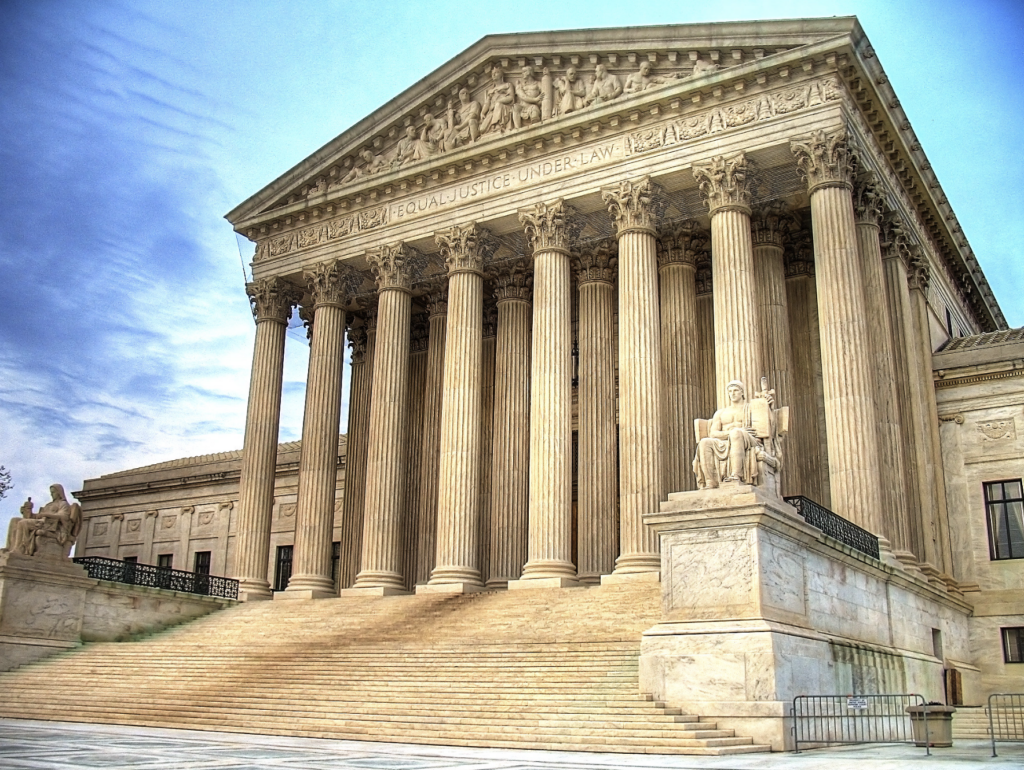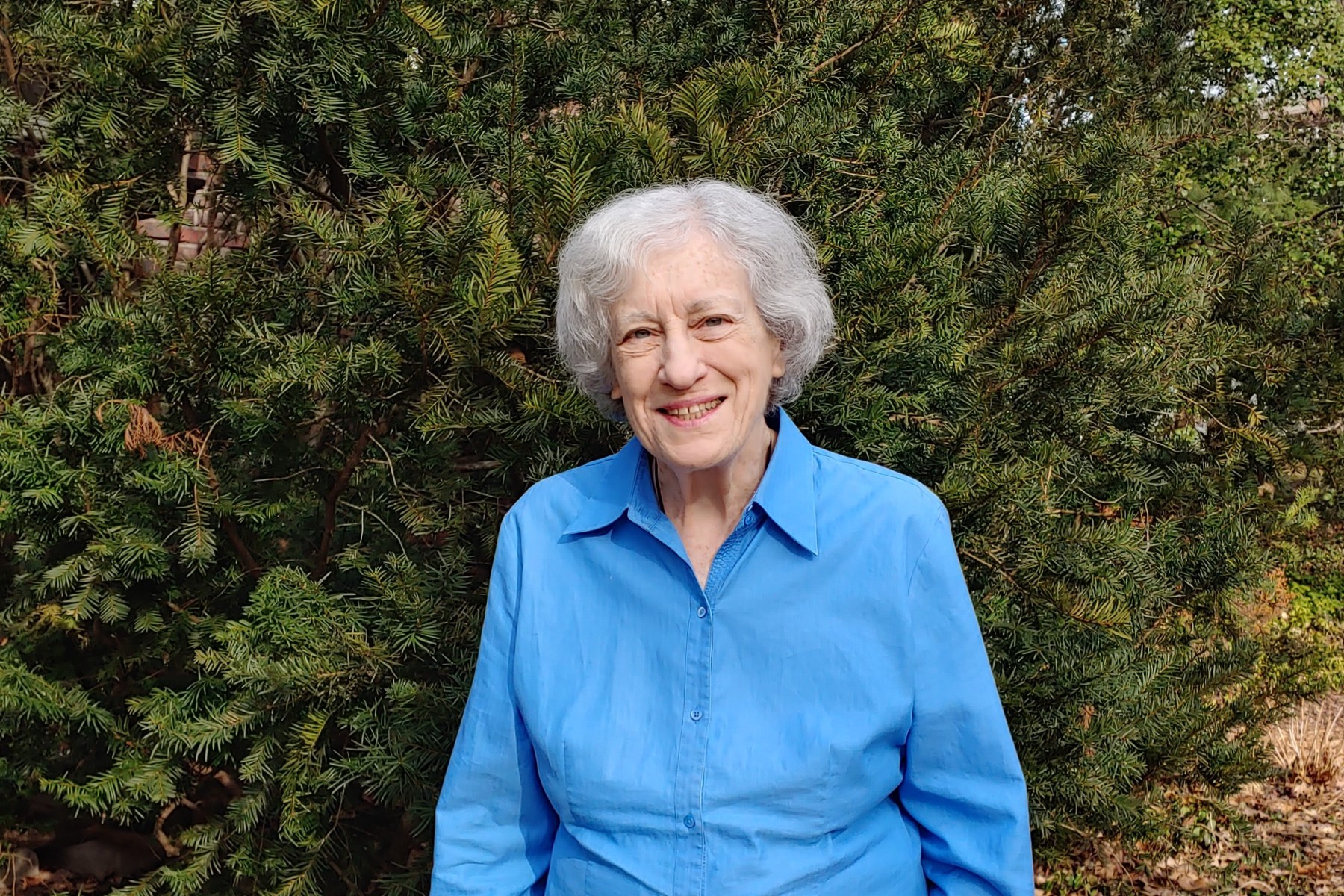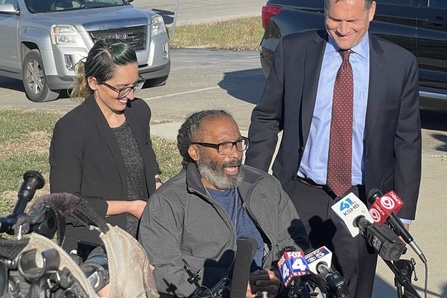Nina Totenberg says the Supreme Court is the most conservative, least respected in decades
By William H. Freivogel

Nina Totenberg told St. Louis audiences last week that the U.S. Supreme Court is the most conservative in 90 years and has lost legitimacy with many Americans.
Totenberg has covered the court for the past half century, including more than four decades at NPR. She was speaking Oct. 13 to supporters of St. Louis Public Radio and later at the Justice Speaks lunch sponsored by Legal Services of Eastern Missouri.
Gallup polls have shown that approval of the Supreme Court has dipped from 60 to 40 percent in the wake of its decision to overturn Roe v. Wade and after a series of ethics questions raised about undisclosed gifts.
Totenberg said that the most serious criticism flows from Pro Publica’s investigation of Justice Clarence Thomas finding scores of expensive gifts from wealthy benefactors. Most of the other gifts received by justices are “chump change,” Totenberg said.
She dismissed questions about Justice Sonia Sotomayor’s profit from book sales and recruiting commissions for Chief Justice John Roberts’ wife. Jane Roberts earned $10 million in commissions over eight years. Totenberg said ethics complaints based on her work were a nonstarter. She added that Justice Brett Kavanaugh lives in a modest house outside D.C. and doesn’t have a lavish lifestyle.
By contrast, ProPublica reported earlier this year that Texas real estate billionaire Harlan Crow paid for vacations, private jet flights, gifts, the purchase of Thomas’ mother’s house in Georgia and tuition payments. After digging deeper, ProPublica found 38 destination vacations, 26 private jet flights, eight helicopter rides, a dozen VIP passes to professional and college sporting events and two stays at luxury resorts in Florida and Jamaica.
The only other questionable gift, Totenberg said, was Samuel Alito’s expensive undisclosed fishing trip to Alaska in 2008 paid for by Republican billionaire donor Paul Singer, whose hedge fund has business before the court.
Alito issued a hot defense, even before ProPublica went to press. Totenberg suggested Alito would be better off if someone in his inner circle would tell him to pipe down because his defensive remarks bring more attention to the issue.
Totenberg said Democrats in Congress were nowhere near having enough votes to force an ethics regime on the court and even if it did it might violation the Constitution’s separation of powers. Totenberg said Sen. Richard Durbin, D-Il., the Judiciary Committee chair just hopes that the chief justice can some up with a voluntary ethics policy that Thomas and Alito will go along with.
Roberts has said he is continuing to look at ways the court can address ethics concerns, a job that may have become easier by a statement this week by conservative Justice Amy Coney Barrett that a court ethics code would be a “good idea.”
Abortion surprise
Totenberg said Kavanaugh seemed sincere when he said that all the court had done in overturning Roe v. Wade was to send the issue back to the states and withdraw the Supreme Court from the controversy.
But the justices were clearly wrong in thinking abortion would vanish from its docket. She ticked off all of the abortion issues that now face the Supreme Court because of the 2022 Dobbs decision overruling Roe – Can a woman cross state lines to get an abortion? Can a person help a woman cross state lines to get an abortion? Can courts void FDA approval of mifepristone tablets for ending pregnancy during the first 10 weeks of pregnancy?
Partly because of the many cases that Dobbs has generated, Totenberg doubts that the Supreme Court will overturn its same-sex marriage decision, on which hundreds of thousands of families throughout the nation put great reliance. Fifteen percent of the 1.1. million same sex couples are raising children, according to census figures.
Partisan divide
Totenberg said the partisanship of the justices was much more evident in voting patterns today than when she began in the 1970s. Then, some nominees of Repubican presidents voted on the liberal side of cases. She ticked off as examples Chief Justice Earl Warren, William J. Brennan Jr, and John Marshall Harlan – Eisenhower appointees – Lewis Powell Jr. – Nixon – Justices Anthony M. Kennedy, Sandra Day O’Connor – Reagan – and Justice David Souter – George H. W. Bush.
Today’s six justice conservative majority consists entirely of Republican nominees.
Today Chief Justice Roberts sometimes votes with the justices nominated by Democrats. He would have permitted abortions before 15 weeks rather than entirely overturn Roe. Last term he brought Kavanaugh along to form a majority throwing out Alabama’s congressional redistricting for violating the Voting Rights Act.
Totenberg said Alabama’s initial refusal to draw a second district where a Black candidate could win reminded her of the days when the segregated South tried to hold out against racial desegregation. The Alabama decision could apply to as many as three other states in the South, providing Democrats with a chance to pick up three seats as part of an effort to take back the majority in the House.
The reason Roberts’ decision was surprising in the Alabama case is that he was the author of a decision a decade ago throwing out the preclearance provisions of the Voting Rights Act that prevented voting changes in the South from going into effect if they were discriminatory. At the time, Roberts said the nation had changed, having even elected a Black president. Totenberg recalled that her friend, the late Justice Ruth Bader Ginsburg, had written at the time that getting rid of preclearance was like a person in a rain storm throwing away an umbrella because they weren’t getting wet.
Scrutiny of 5th Circuit
Totenberg said that the 5th Circuit in the deep southern states of Alabama, Mississippi, Louisiana and Texas has become the most conservative in the country and that the decision overturning the Alabama racial redistricting might presage other decisions from that appeals court that could be thrown out by a majority consisting of the Democrats plus Roberts and one or more of the more moderate conservatives, such as Kavanaugh or Barrett.
Among the cases she cited were:
- The decision challenging the FDA’s approval of mifepristone dispensed through the mail;
- A decision throwing out the Biden administration’s crack down on “ghost guns” that can be assembled by the user without being registered or traceable. (On Oct. 16 the Supreme Court blocked a lower court ruling that ordered the Biden administration not to enforce its crack down on the guns.)
- A decision finding that the government violates the First Amendment when it urges social media to take down false posts about such topics as covid vaccinations.
Case Law School Professor Jonathan H. Adler wrote this month about the high number of Fifth Circuit decisions that the Supreme Court was overturning. He noted between the 2019 and 2022 terms, decisions from the Fifth Circuit have been reversed more than twice as frequently as they have been affirmed (15 to seven on cases with clear outcomes).
The older the better
At the St. Louis Public Radio breakfast, Totenberg was asked if she favored mandatory retirement ages for the justices.
She said she was no more in favor of mandatory retirement for justices than she was for reporters, such as herself, writing about the justices.
She said she was a better reporter today than she had been years ago and gave an example from recent events. When California Sen. Dianne Feinstein died recently Totenberg remembered a time on the Senate floor when Sen. Larry Craig, a conservative from Idaho, had said the senator’s sponsorship of an assault weapons ban might be because she wasn’t familiar with firearms. Feinstein replied sharply that she was very familiar with firearms having been the first person to come to the aid of former San Francisco Mayor George Moscone when he and gay councilman Harvey Milk were assassinated by a fellow councilman. Feinstein recalled that she had put her finger in the gunshot wound in a failed attempt to stop the bleeding.
NPR broadcast the exchange that Totenberg remembered and it was widely replayed on social media in the wake of Feinstein death.
Totenberg said she was a better reporter on that story because, “I was there.”
William H. Freivogel is a professor and former director of the School of Journalism at SIUC. He is the publisher of Gateway Journalism Review.


